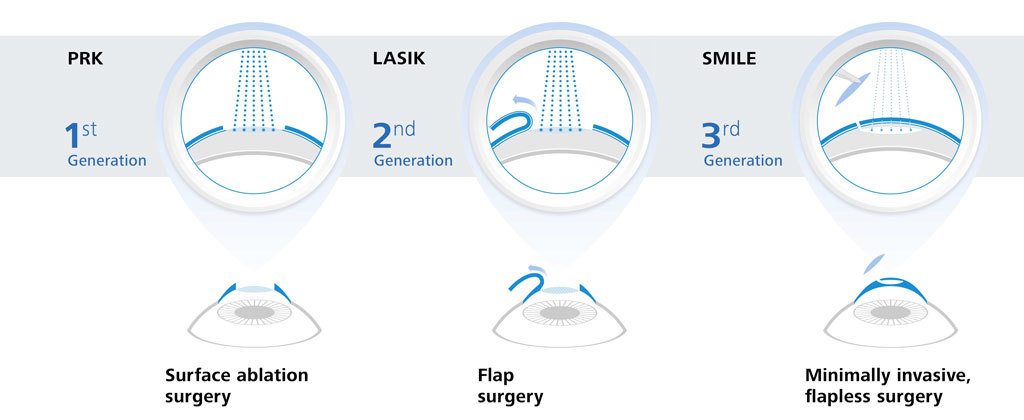Thinking Of SMILE Surgery? Analyze Crucial Components And Understandings That Can Encourage You To Make An Enlightened Choice About Your Sight'S Future
Thinking Of SMILE Surgery? Analyze Crucial Components And Understandings That Can Encourage You To Make An Enlightened Choice About Your Sight'S Future
Blog Article
Posted By-McDowell Thestrup
If you're considering SMILE eye surgical procedure, contemplate this: are you prepared to accept potential visual liberty, or does the thought of any kind of risks make you wait? Your decision will certainly hinge on a mindful equilibrium of evaluating the advantages against the unpredictabilities. It's important to dive deeper into the subtleties of SMILE surgical treatment to make an informed choice that aligns with your aesthetic objectives.
Comprehending SMILE Eye Surgical Procedure
When thinking about SMILE Eye Surgery, it's important to understand the treatment and its advantages. SMILE, which stands for Little Cut Lenticule Extraction, is a minimally invasive laser eye surgical procedure that fixes typical vision problems like myopia (nearsightedness).
During the procedure, your eye cosmetic surgeon will use a femtosecond laser to develop a little cut in your cornea. Via this laceration, a tiny disc of tissue called a lenticule is removed, reshaping the cornea and correcting your vision.
Among LASIK Institute of SMILE Eye Surgery is its quick healing time. Lots of patients experience boosted vision within a day or two after the procedure, with marginal pain.
Additionally, SMILE is understood for its high success rate in supplying long-term vision correction. Unlike LASIK, SMILE doesn't call for the creation of a flap in the cornea, reducing the risk of complications and permitting a much more stable corneal structure post-surgery.
Understanding the procedure and its advantages is crucial when taking into consideration SMILE Eye Surgery for vision modification.
Advantages and disadvantages of SMILE
Considering SMILE Eye Surgical procedure for vision modification includes various advantages and possible disadvantages.
One of the main pros of SMILE is its minimally invasive nature, as it involves a little cut and commonly leads to fast healing times. The treatment is likewise recognized for triggering very little discomfort and dry eye symptoms post-surgery compared to various other vision improvement approaches. In addition, SMILE has actually been shown to give exceptional aesthetic results, with lots of clients attaining 20/20 vision or far better.
On the other hand, a possible con of SMILE is that it might not be suitable for individuals with severe refractive mistakes, as the therapy range is somewhat limited compared to LASIK. One more consideration is that the knowing curve for cosmetic surgeons executing SMILE can affect the schedule of skilled carriers in certain areas.
It is very important to consider these pros and cons thoroughly when determining if SMILE is the ideal option for your vision correction demands.
Figuring Out Eligibility for SMILE
To determine if you're qualified for SMILE eye surgical treatment, your ophthalmologist will certainly conduct a detailed analysis of your eye health and vision requirements. During this assessment, aspects such as the security of your vision prescription, the thickness of your cornea, and the total wellness of your eyes will be evaluated.
Generally, cataract surgery at 45 for SMILE are over 22 years old, have a steady vision prescription for a minimum of a year, and have healthy corneas without conditions like keratoconus.
Your ophthalmologist will likewise consider your overall eye health, any existing eye conditions, and your way of living requires to identify if SMILE is the best selection for you. It's essential to interact any kind of details visual demands or worries you may have throughout this assessment to ensure that the therapy straightens with your assumptions.
If you aren't eligible for SMILE, your optometrist may recommend different vision improvement choices that much better suit your private requirements and eye health and wellness status.
Final thought
Eventually, determining whether SMILE eye surgical treatment is right for you needs cautious factor to consider of your specific eye health and wellness and visual demands. Consult with your optometrist to determine your eligibility for the treatment and evaluate the prospective benefits and downsides. Bear in mind to communicate any concerns or inquiries you might have during the analysis procedure to make an educated choice about your vision improvement choices.
